Growing up in the mid-20th century meant living through an era of constant change and incredible world events. Every moment seemed to bring a new breakthrough, a crisis, or a cultural shift that left a lasting mark on history—and on you. These are the events you witnessed firsthand, the ones that made you gasp, cheer, or even shed a tear. Let’s take a nostalgic trip back through time to revisit the moments that shaped not just your world, but the world at large.
1. The Cuban Missile Crisis (1962): On the Brink of Nuclear War
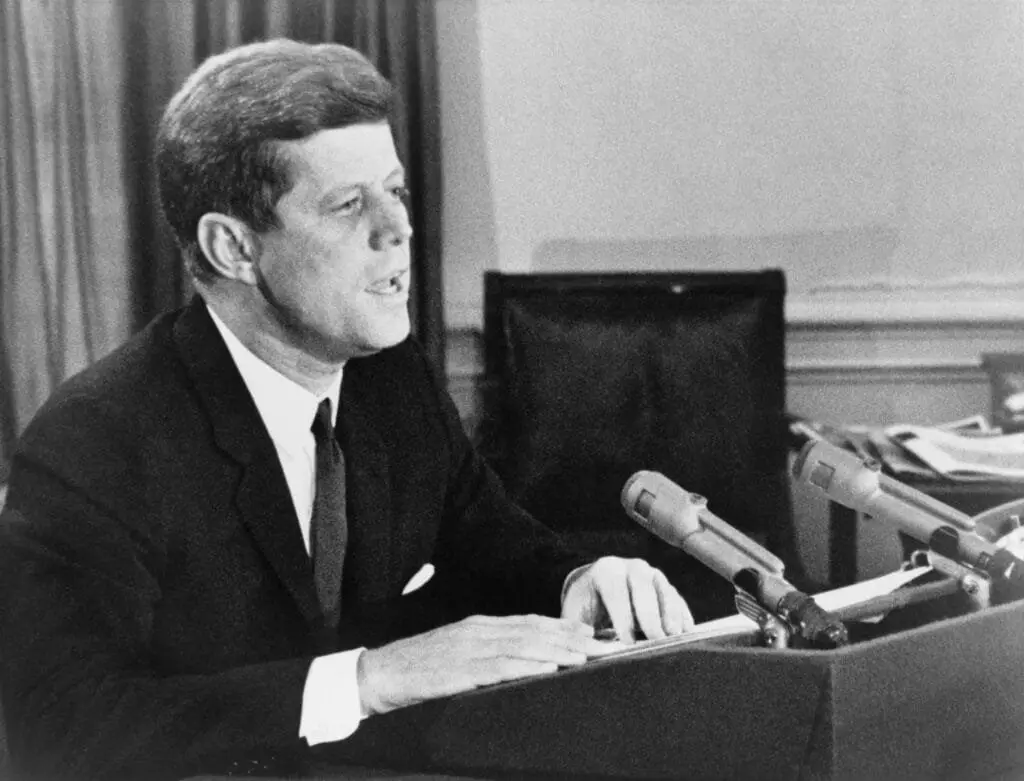
For 13 tense days in October 1962, the world teetered on the edge of nuclear war. The Cuban Missile Crisis was a confrontation between the U.S. and the Soviet Union that brought the Cold War to its most perilous point. Families tuned in anxiously to President Kennedy’s address, wondering if their lives would change forever. The fear was palpable, and the relief immense when a peaceful resolution was reached. It was a reminder of the fragility of peace and the high stakes of international diplomacy.
2. The Assassination of John F. Kennedy (1963): The Day the Nation Cried
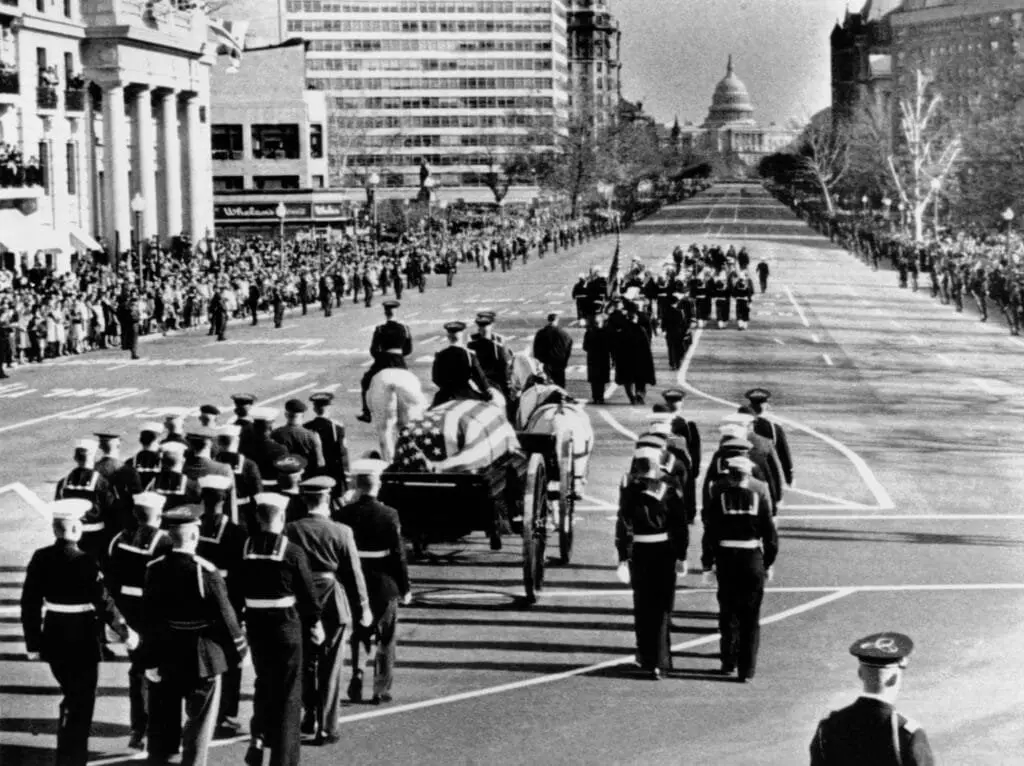
If you ask anyone from that era where they were on November 22, 1963, they can tell you in vivid detail. The day President John F. Kennedy was assassinated in Dallas, Texas, left the nation in shock and mourning. Schools, workplaces, and homes were filled with disbelief and grief. It was a moment that shattered the country’s innocence and marked the end of an era. JFK’s youthful charisma and promise of a “New Frontier” made his loss feel deeply personal to millions. The nation felt unified in its grief, and the ripple effects of that day still linger in the American consciousness.
3. The Beatles’ Arrival in America (1964): Beatlemania Begins
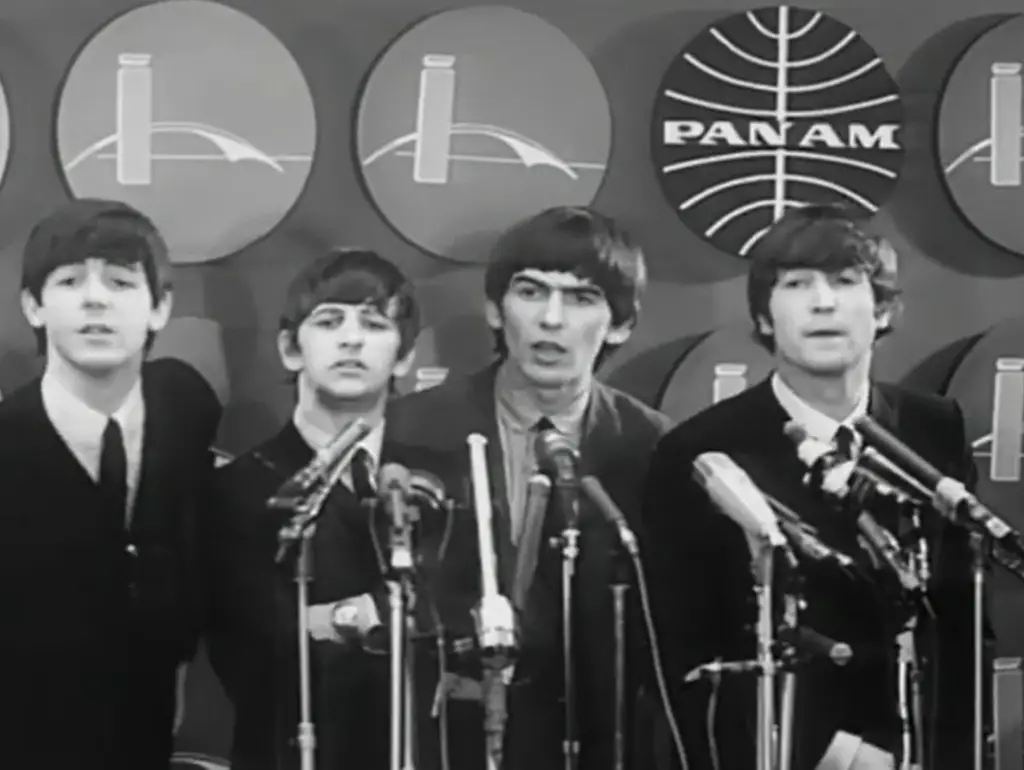
The moment the Beatles stepped off that plane at JFK Airport in 1964, America changed forever. Beatlemania swept the nation like a tidal wave, with screaming fans greeting the Fab Four wherever they went. Their appearance on The Ed Sullivan Show captivated 73 million viewers, making it one of the most-watched TV events in history. The Beatles didn’t just bring a new sound; they introduced a cultural revolution. For many, it marked the start of the British Invasion and a love affair with rock ‘n’ roll that defined a generation.
4. The Vietnam War Protests: Voices for Peace
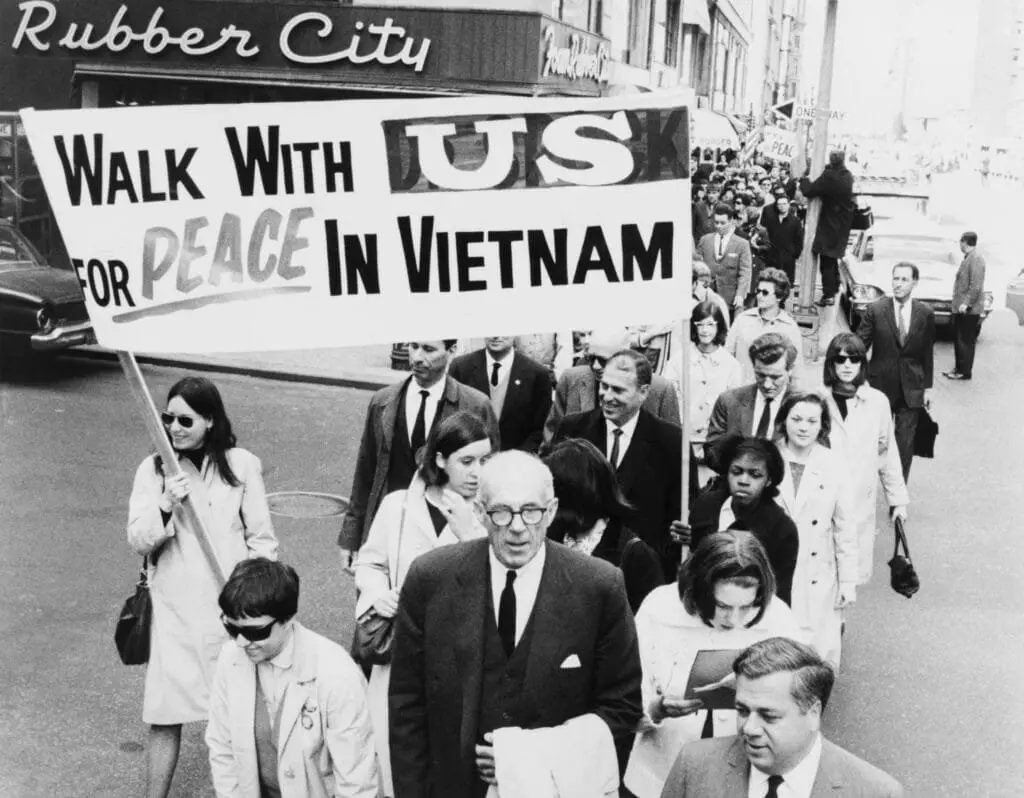
The Vietnam War divided the nation, and the protests that erupted in response were unprecedented. College campuses became hotbeds of activism, with students risking everything to make their voices heard. The 1969 Moratorium to End the War in Vietnam was one of the largest anti-war protests in American history, with millions gathering across the country. It was a time of turmoil, but also of hope, as people rallied for peace and demanded change. The war, and the movement against it, changed how America viewed itself and its role in the world.
5. The Civil Rights Movement: Marching Toward Equality

The fight for civil rights in the ‘50s and ‘60s was marked by countless historic moments, from Martin Luther King Jr.’s “I Have a Dream” speech at the 1963 March on Washington to the passage of the Civil Rights Act of 1964 and the Voting Rights Act of 1965. For those who lived through it, it was a time of bravery and heartbreak, as activists faced immense obstacles in their quest for justice and equality. The images of peaceful protesters facing violent resistance were seared into the national consciousness, leaving a legacy of courage and a reminder of the ongoing fight for civil rights.
6. Woodstock (1969): Three Days of Peace and Music
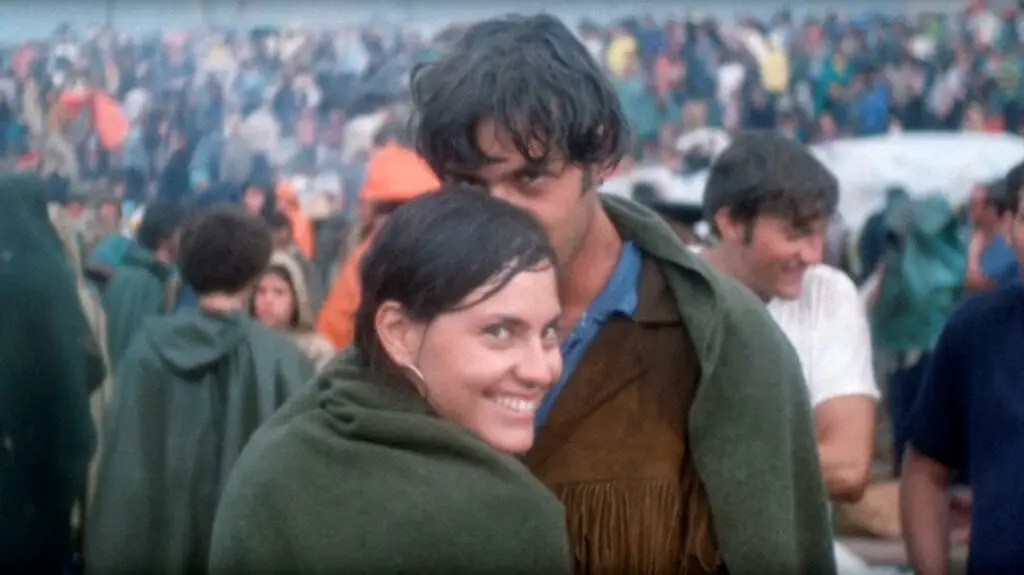
For those lucky enough to have been there—or wished they were—Woodstock was more than just a music festival; it was a cultural phenomenon. It symbolized the spirit of the counterculture movement and brought together over 400,000 people in a celebration of peace, love, and rock ‘n’ roll. Artists like Jimi Hendrix, Janis Joplin, and The Who delivered legendary performances that defined the era. Even for those who watched from afar, Woodstock represented the hope and idealism of the youth who wanted to change the world.
7. The Moon Landing (1969): “One Giant Leap for Mankind…”
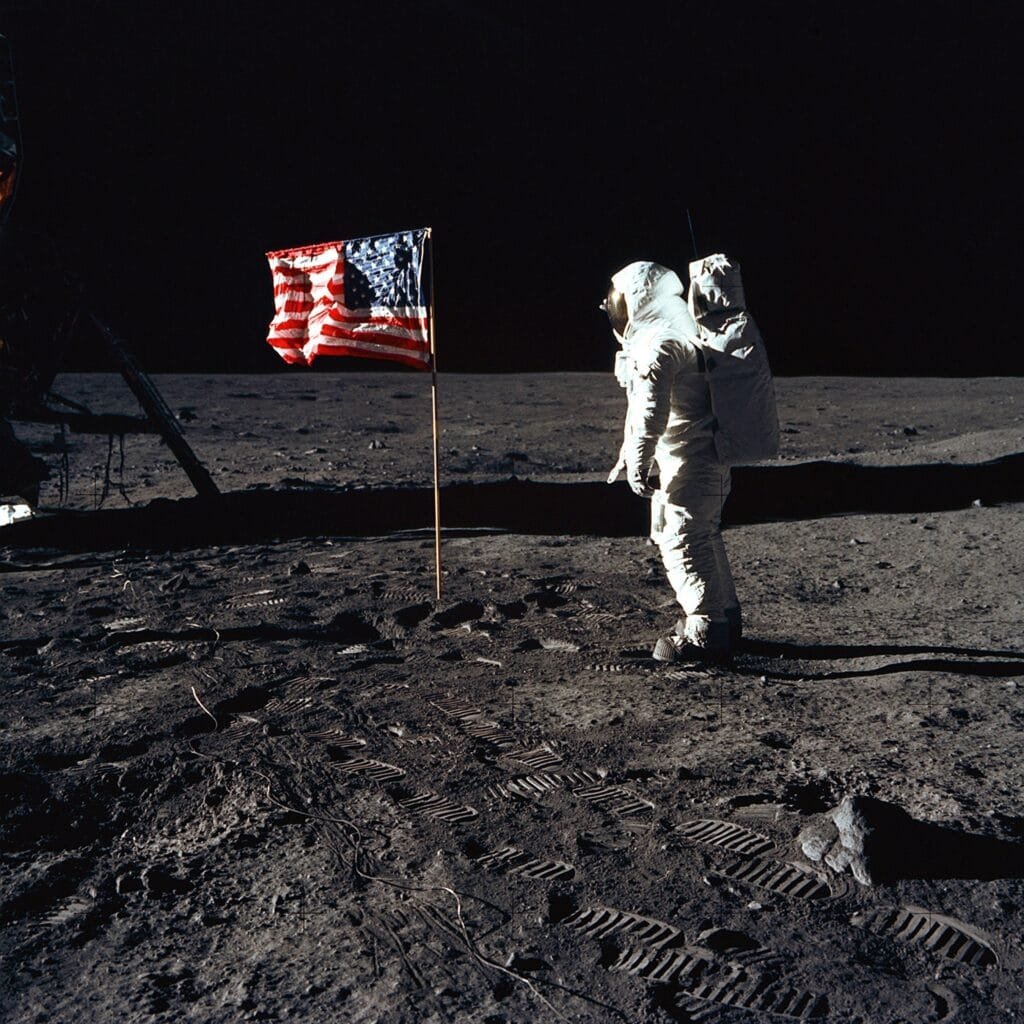
Who can forget the night of July 20, 1969? The entire world seemed to hold its breath as Neil Armstrong took that historic step onto the moon’s surface. Families gathered around their televisions, many watching a broadcast that felt like something out of science fiction. But it was real. Those grainy black-and-white images of the Apollo 11 astronauts bouncing in the low gravity of the moon left us all in awe. It was a triumphant moment for humanity, showcasing the boundless possibilities of human achievement and the magic of the space race. You probably still remember where you were when you heard Armstrong’s famous words.
8. Watergate Scandal (1972–1974): The Fall of a President
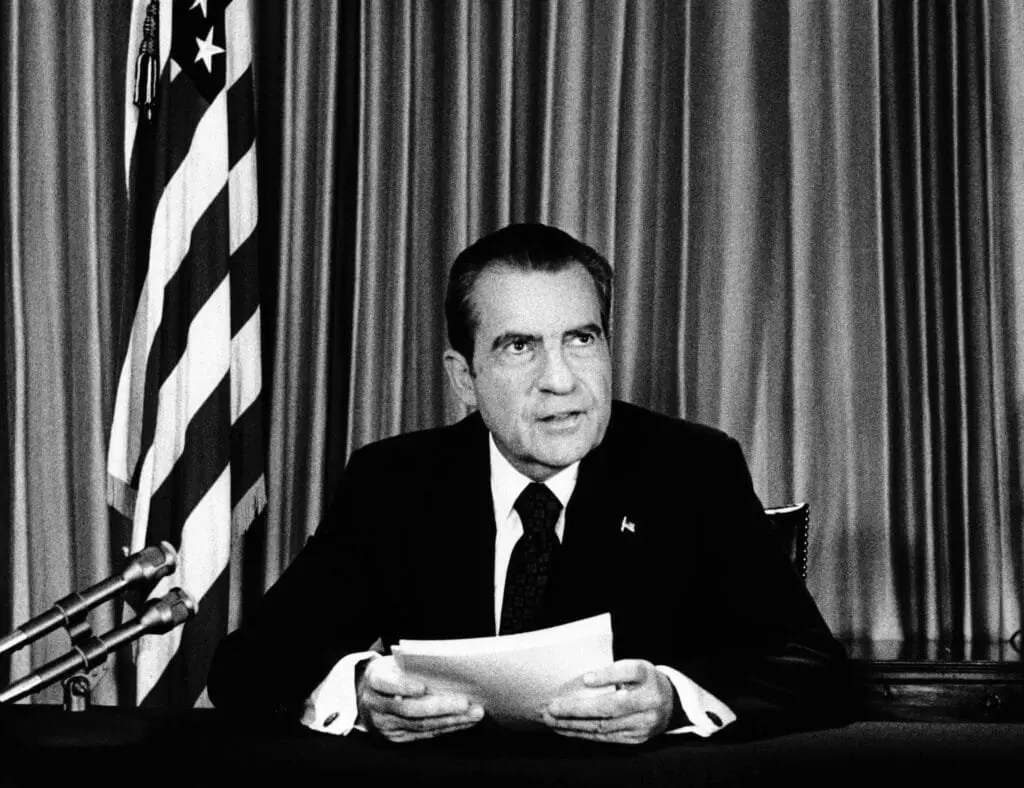
The Watergate scandal was a political earthquake that shook the foundations of American government. The revelations of corruption and cover-ups within the Nixon administration left the nation stunned. As the story unfolded over two years, it became clear that the president was involved, leading to Richard Nixon’s resignation in 1974. The scandal forever changed the public’s view of politics, eroding trust in government and establishing a new era of investigative journalism. It was the moment that the word “gate” became synonymous with scandal.
9. The Feminist Movement: Women’s Liberation Takes Center Stage
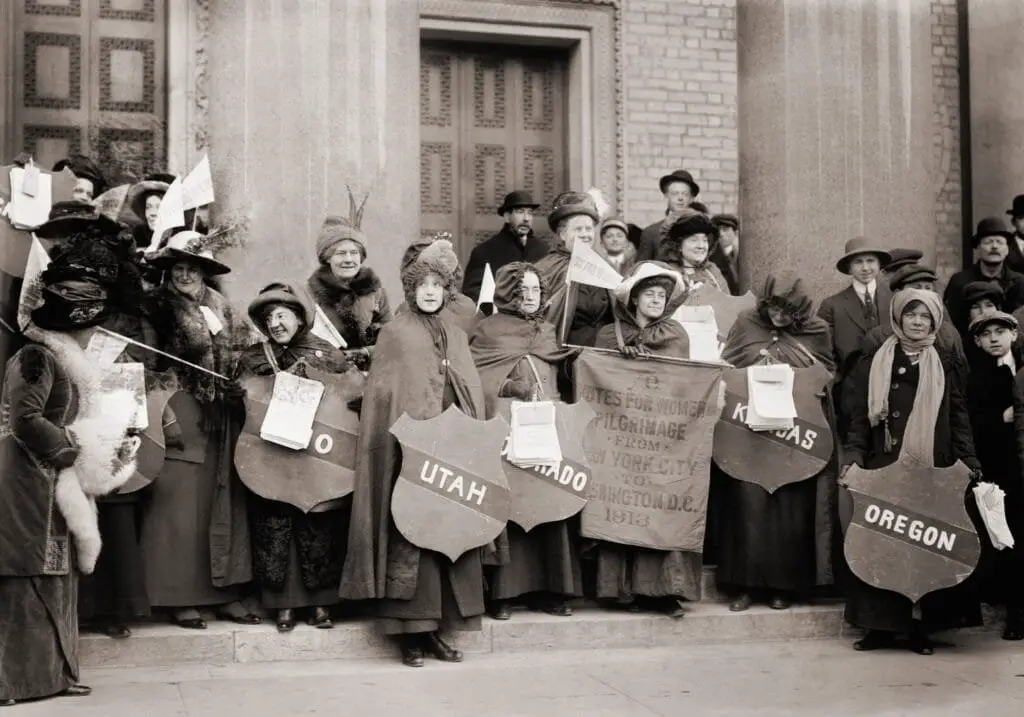
The feminist movement of the ‘60s and ‘70s brought issues like gender equality, reproductive rights, and workplace discrimination into the national conversation. From the publication of Betty Friedan’s The Feminine Mystique in 1963 to the passing of Title IX in 1972, the fight for women’s rights was gaining momentum. Women marched, rallied, and lobbied for change, and many of the freedoms women enjoy today are a direct result of those efforts. It was a time of empowerment and awakening, with women demanding a seat at the table—and getting it.
10. The End of the Draft (1973): A New Era for Young Americans
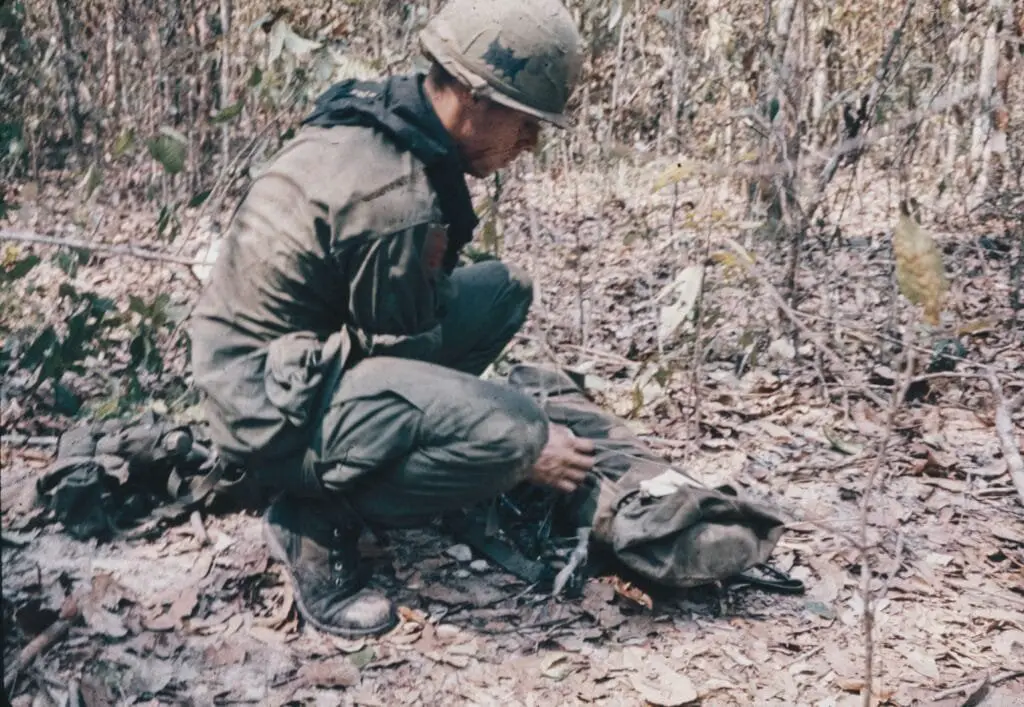
For decades, young men faced the possibility of being drafted into military service, creating an undercurrent of anxiety for those coming of age during times of conflict. The end of the draft in 1973 marked a major shift in American society, granting young men the freedom to choose their own paths without the specter of mandatory military service. It was a moment of relief and celebration for families everywhere, marking the beginning of the all-volunteer military we have today.
11. The Rise of Environmentalism: Earth Day and Beyond
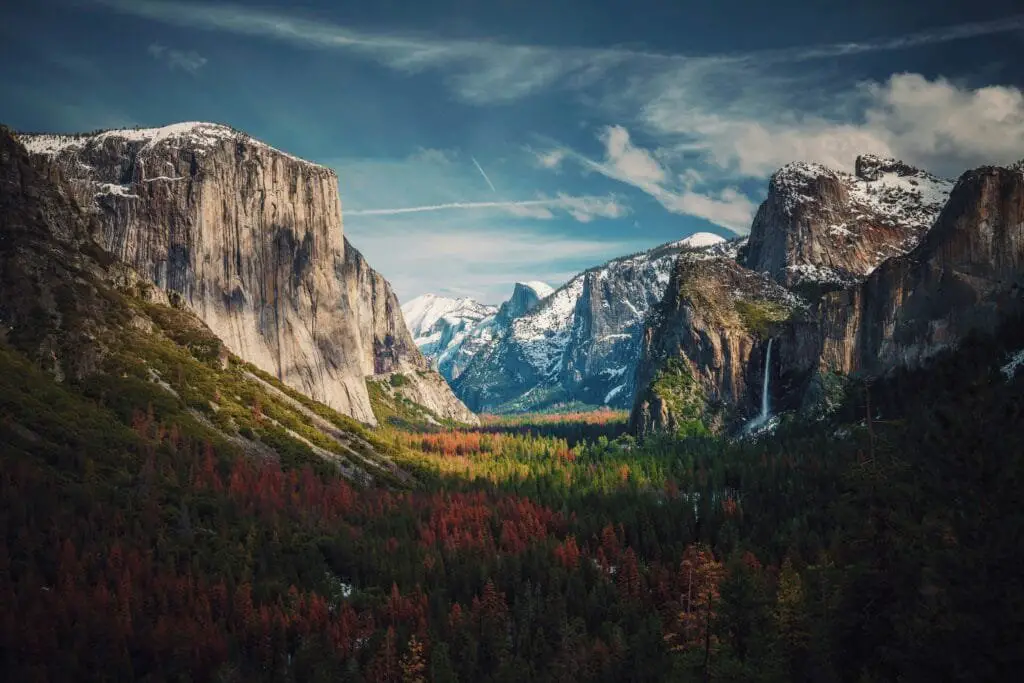
The first Earth Day in 1970 signaled a growing awareness of the need to protect our planet. With the publication of Rachel Carson’s Silent Spring in 1962 and a series of environmental disasters throughout the decade, people began to realize that the Earth’s resources were not limitless. The movement led to significant legislation, including the Clean Air Act and the Endangered Species Act, making environmentalism a permanent part of the national dialogue.
12. The Fall of Saigon (1975): The End of the Vietnam War
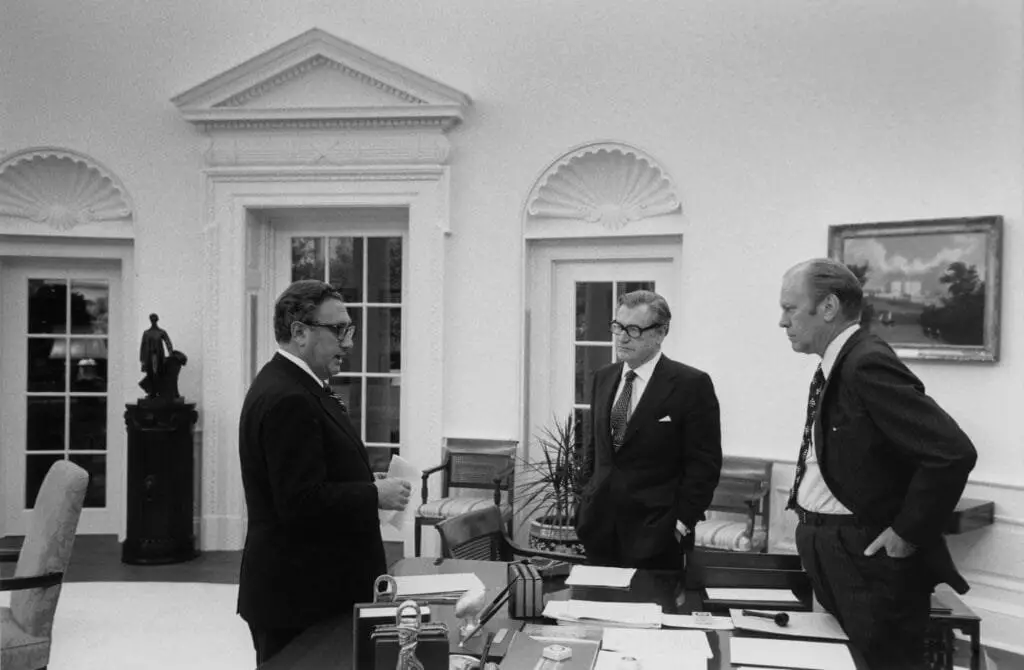
The fall of Saigon in April 1975 marked the end of the Vietnam War, a conflict that had defined a generation. The images of helicopters evacuating people from the U.S. embassy and the chaotic scenes in the streets symbolized not just the end of the war, but the loss of American innocence and a turning point in U.S. foreign policy. It was a moment of deep reflection for the nation, as the country grappled with the war’s legacy and the experiences of returning veterans.
13. The Assassination of Martin Luther King Jr. (1968): A Dream Cut Short
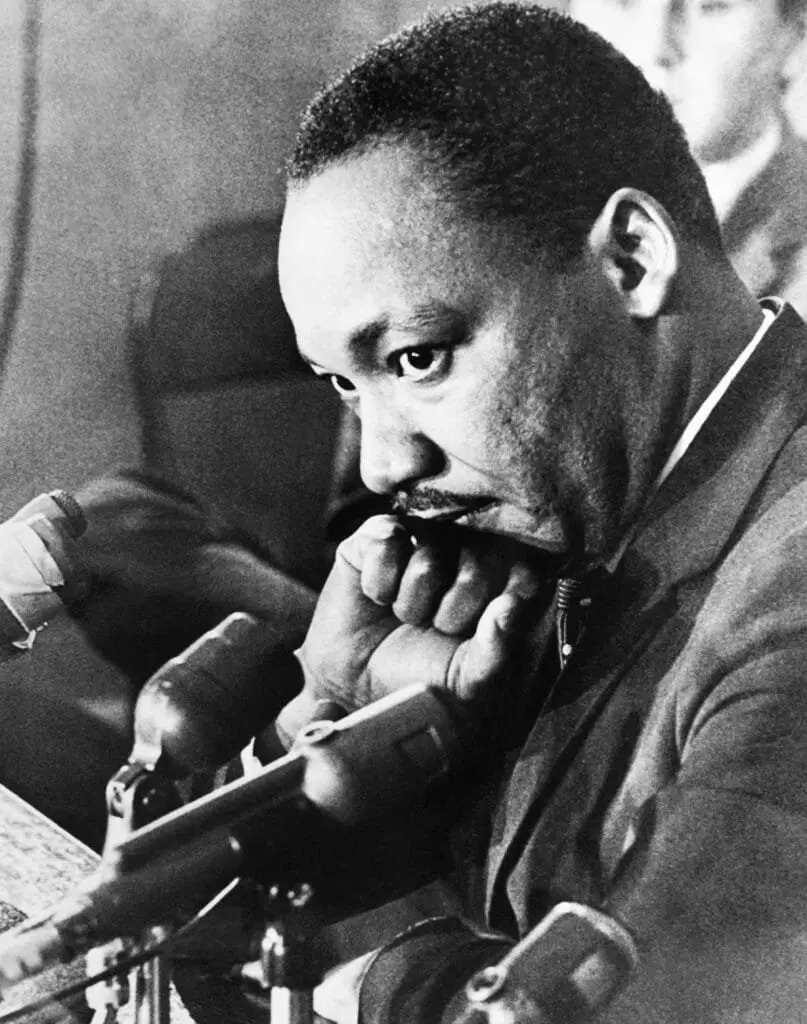
Martin Luther King Jr.’s assassination in April 1968 was a devastating blow to the Civil Rights Movement and the nation. His message of peace, equality, and justice resonated deeply, and his death left a void that was keenly felt. The riots and unrest that followed underscored the deep racial divisions in America. King’s legacy endures as a reminder of the power of nonviolent resistance and the ongoing struggle for racial justice.
14. The Energy Crisis (1973): Gas Lines and New Realities
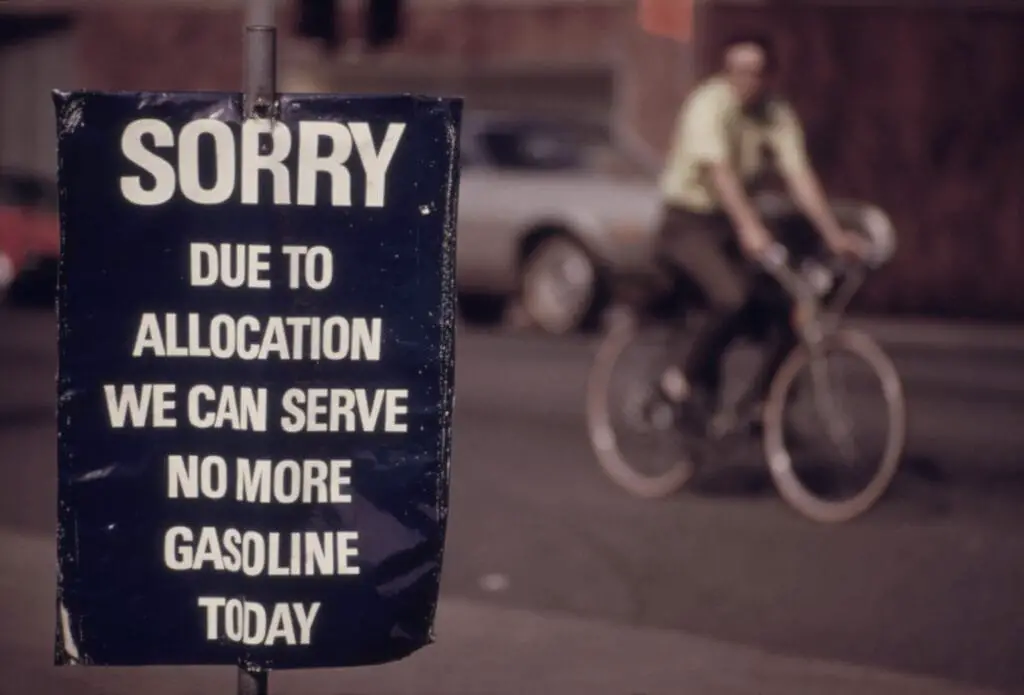
The 1973 oil embargo led to an energy crisis that threw the nation into chaos. Long lines at gas stations, skyrocketing prices, and a new awareness of energy consumption became a part of daily life. It changed driving habits, influenced car designs, and led to a new focus on energy independence. It was a wake-up call that the world was changing, and the era of endless resources was over.
15. The Fall of the Berlin Wall (1989): A World Reunited
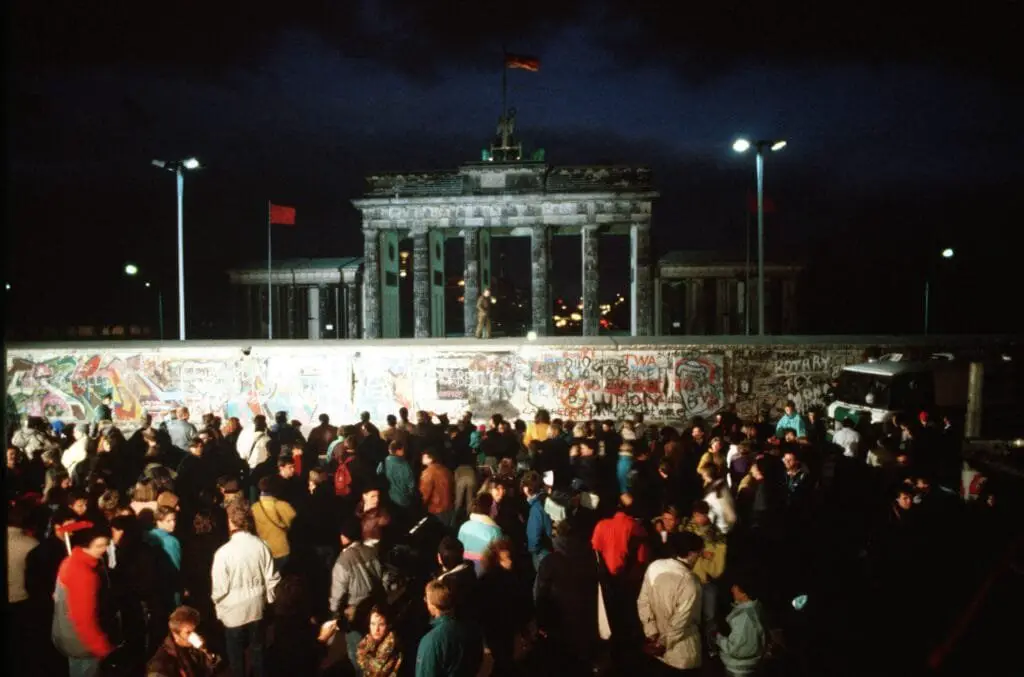
Even if it happened in the late ’80s, the fall of the Berlin Wall was a culmination of decades of Cold War tension that you grew up with. The image of East and West Berliners climbing the wall, chipping away at it piece by piece, and embracing each other was a powerful symbol of freedom and hope. The Wall had divided not just a city, but families and an entire world. Its fall signified the end of a divided Europe, the collapse of communist regimes across Eastern Europe, and a new chapter of unity and optimism. Watching that moment on TV, knowing it was a turning point that you never thought you’d see in your lifetime, was nothing short of incredible. It felt like the world was finally coming together again.
These world events were more than just news stories—they were experiences that shaped the lives of millions and left an indelible mark on history. The memories of these moments are woven into the fabric of your upbringing, reminding us all of the resilience and spirit of the generation that lived through them.


